Results 1 to 5 of 5
Thread: Seneca Stone Finish Stone info
-
04-21-2013, 04:25 AM #1Senior Member



- Join Date
- Apr 2012
- Location
- Diamond Bar, CA
- Posts
- 6,553
Thanked: 3215 Seneca Stone Finish Stone info
Seneca Stone Finish Stone info
I got this stone in the other day. It looks like a Thurigian in color, Dark Green and composition, 8x 113/16 inches. See photo next to the Thurigian.
On the back is stamped in a purplish ink the following.
SENECA STONE
This stone has a very fine, sharp and even grit.
For sharpening all kinds of edge tools it will be
found superior to any stone on the market.
USE WITH WATER OR LIGHT OIL
THE AMERICAN CLEARING STONE CO., N.Y.
The stone was in a worn, homemade wooden box with a piece of leather attached to the top. Both box and stone were dirty but not oily, I suspect it was used with water. The stone cleaned up with Simple Green and water and the label was preserved with judicious cleaning with a Scotch Bite pad. The stone was well used and had a worn well in the middle. It lapped fairly easily with diamond plates finishing on a well-worn, 600 grit plate.
The stone slurries easily much like a Thurigian, except the slurry is thick and somewhat sticky, it does not rinse easily off the stone under running water. The slurry is OD green and has a musty, earthy smell.
I honed a new acquisition, an Ardobo, Solingen, “Barbers Pride” that came out of a collection. The bevel was even and in good shape, this razor may never have been used. I did 80-100 circles, in 10 lap segments, on a heavy slurry then 80-100 X laps on a thinning slurry and finished on water 50 + laps . I compared the grit to a Thurigian, honing the bevel on the Seneca then marking the mid-point on the razor and, honing the toe half with the Thurigian, 15 laps and viewed at 100 magnification. The stria appears very similar to the Thurigian, if not a bit finer.
I re-honed on the Seneca and shaved the razor without stropping. The shave was very crisp and comfortable appearing as keen as off a Thurigian. I am sure stropping will improve the edge even more.
So what is this Seneca Stone? I can find nothing on line.
It does appear to be a fine finisher, and possibly and American Stone, though I will have to hone more razors on it for a thorough evaluation.
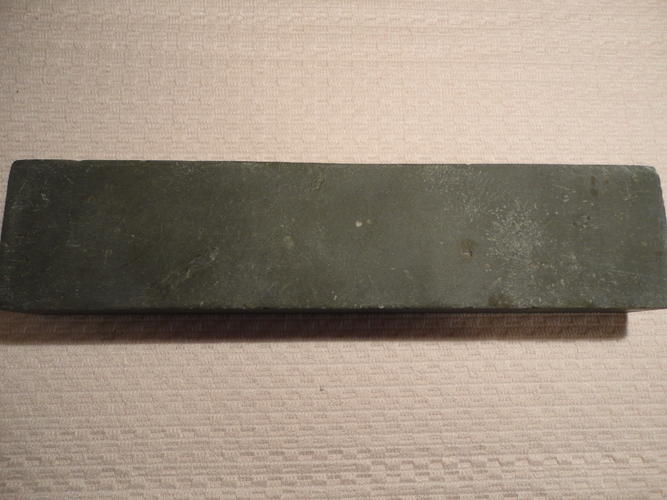
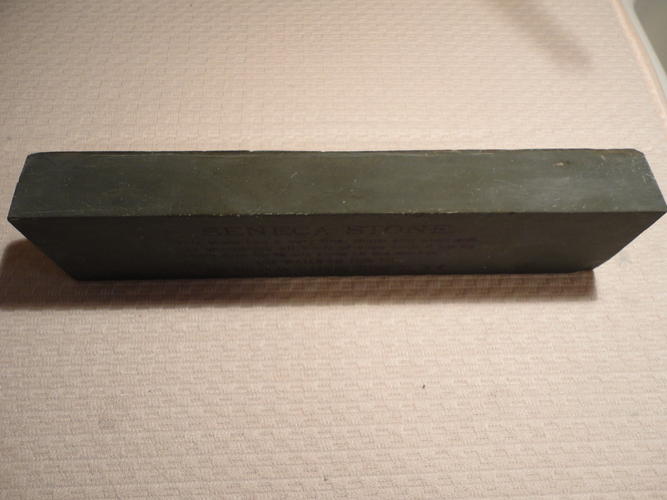
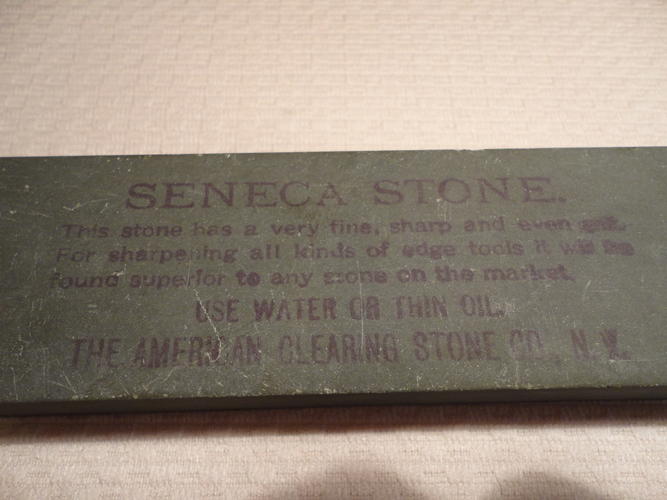
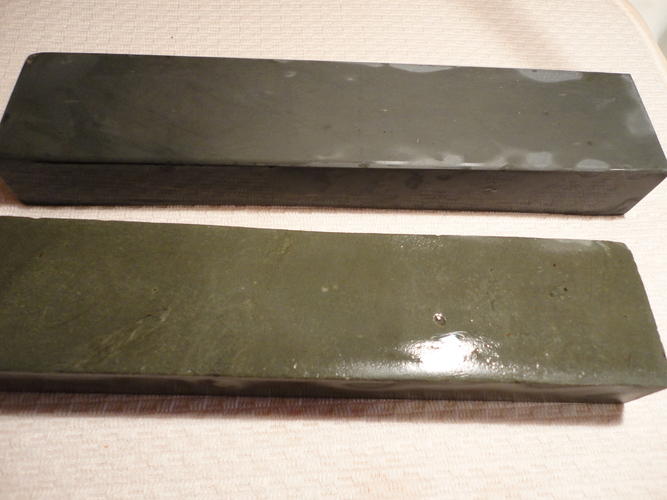
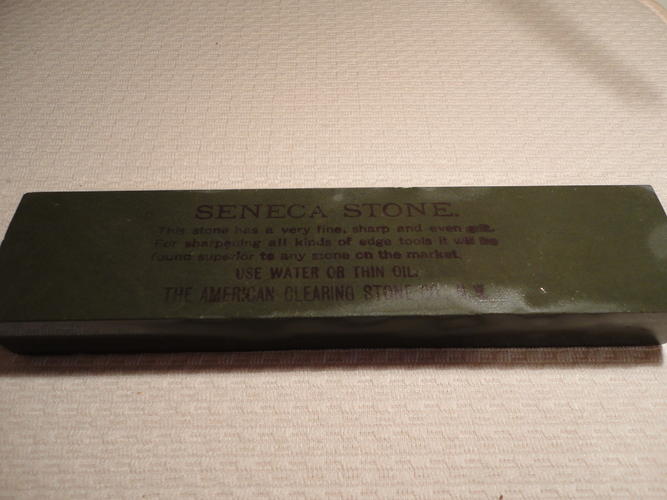
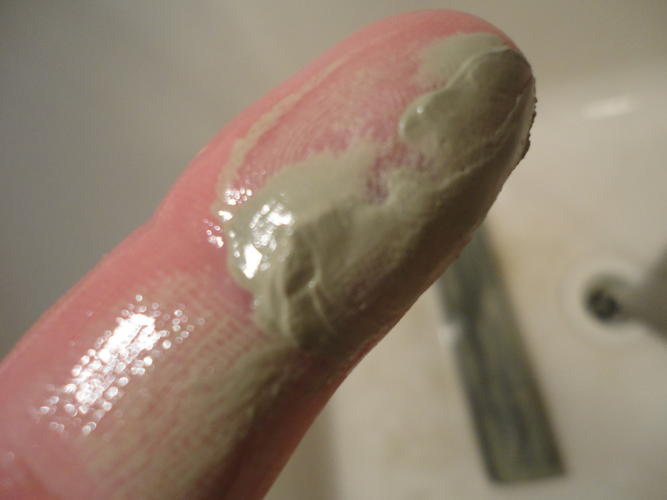
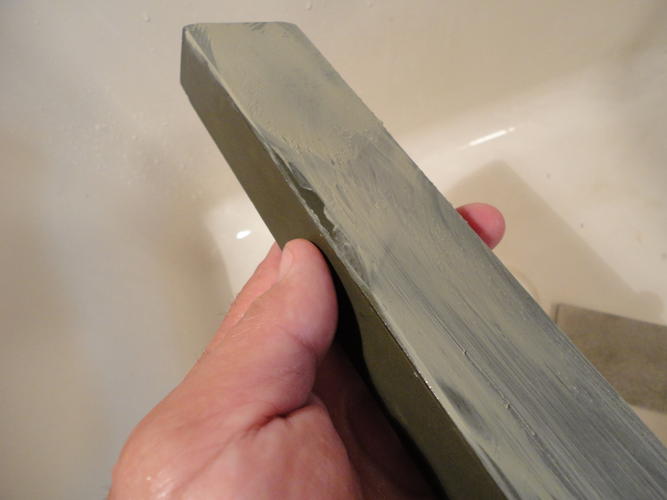
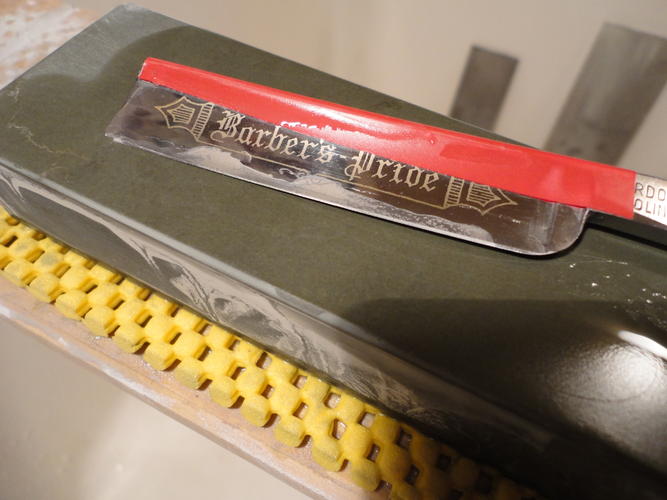
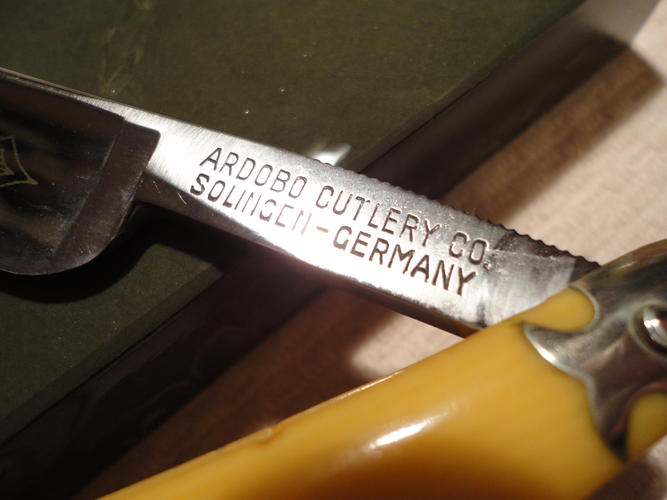
Last edited by Euclid440; 04-21-2013 at 02:27 PM.
-
04-21-2013, 08:35 AM #2

Nice stone, never see or heard about a stone like this,nice catch.
Seneca have something to do with Greece,but in this case I think is just a marketing brand. American cleaning stones was the import or seller company, because the stone is natural and not man made. Thanks for sharing.
-
04-21-2013, 08:47 AM #3Senior Member

- Join Date
- Mar 2009
- Posts
- 1,211
Thanked: 202
For some reason I am thinking of reconstituted stone with abrasive from thuri.
-
04-21-2013, 02:03 PM #4Senior Member

- Join Date
- Jan 2011
- Location
- Lancaster, NY
- Posts
- 129
Thanked: 26
Seneca is also a name of an Indian tribe in western NY. Olean/Salamanca, where the American hone co. amd the makers of the Frictionite stone were in this area. Many knife/blade makers were/are in this area around the turn of the century and still today. Just a guess, but slate/shale. That slurry looks like one produced when you rub two pieces of shale together with water.
-
04-21-2013, 03:04 PM #5Senior Member



- Join Date
- Apr 2012
- Location
- Diamond Bar, CA
- Posts
- 6,553
Thanked: 3215
I suspect the name comes from the Seneca Nation of American Indian tribes or reservation, in the south western part of New York. Interestingly, in the area of Cattaraugus County, Little Valley the home of prolific cutlery/razor manufactures in the early 1900.
The stone appears to be a natural, slate stone and not a reconstituted or manufactured stone. The structure is too random not as uniformed as a remanufactured stone or a Frictionite. There is also some whitish veining as seen in the following photos, taken while wet. See the last photo of the Seneca and a Thurigian side by side, the Seneca is the bottom stone.
It does appear to be an old stone and I as well, thought it may have been an imported and branded stone by The American Clearing Stone Co. NY.
But I have found nothing on American Clearing Stone, and it is an interesting name and what does that “Clearing Stone” name mean?
The stone was in a tight fitting box with the label down and probably never removed, as a result the label was preserved.
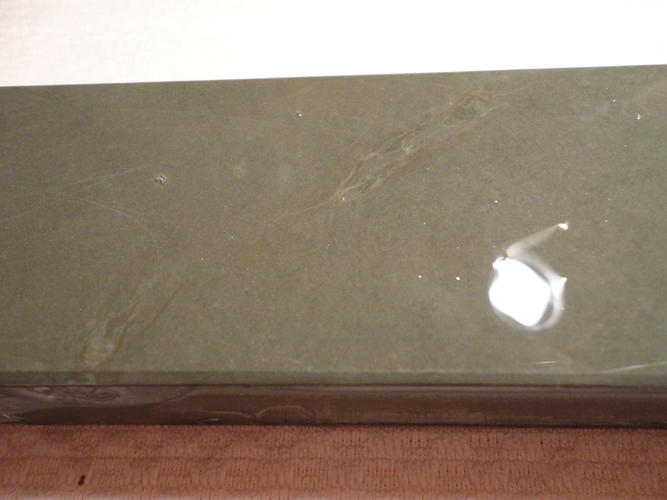
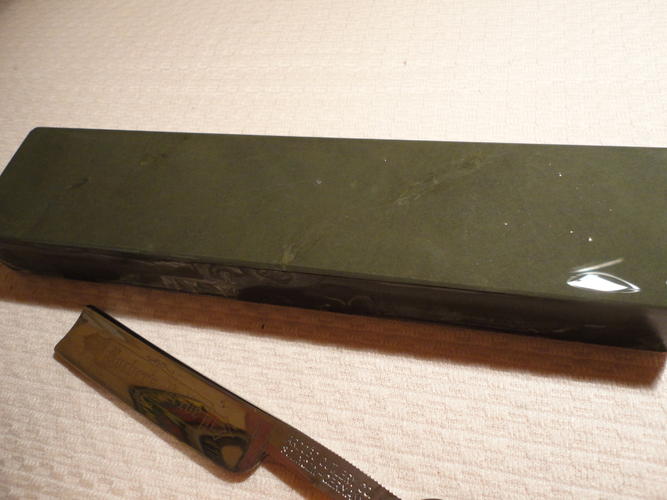
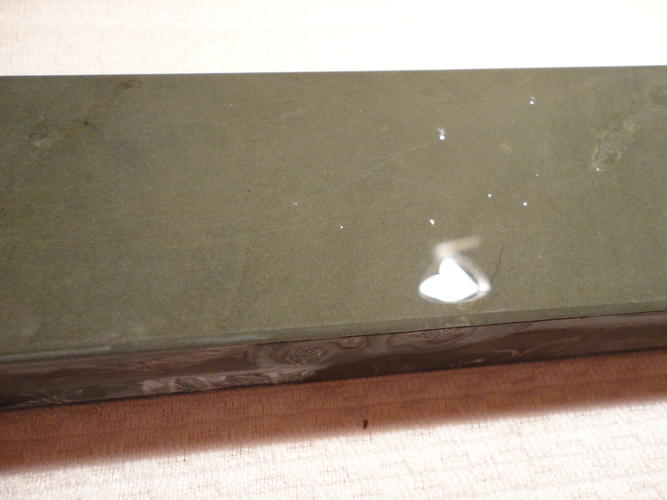
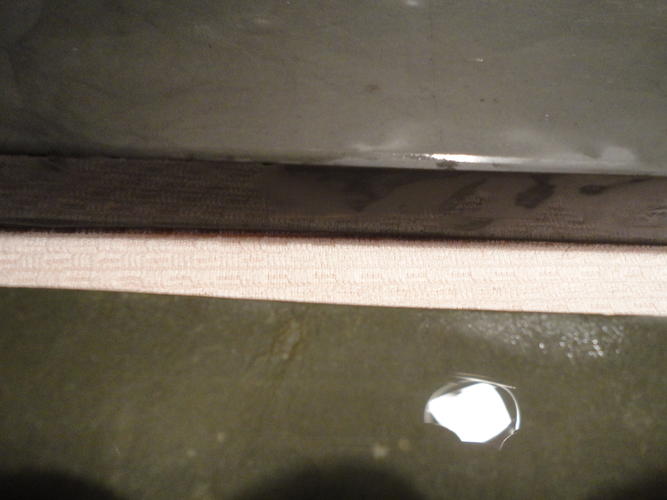
Last edited by Euclid440; 04-21-2013 at 03:18 PM.


 2Likes
2Likes
 LinkBack URL
LinkBack URL About LinkBacks
About LinkBacks






 Reply With Quote
Reply With Quote